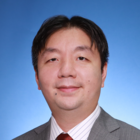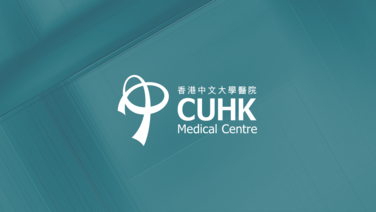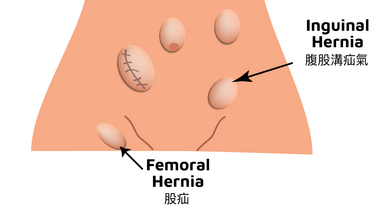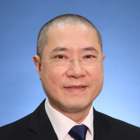Hernia Clinic
1/F, CUHKMC | CUHK Medical Clinic
Introduction
The CUHK Medical Centre Hernia Clinic is devoted to research, teaching and surgery of hernias (inguinal hernia, femoral hernia, umbilical hernia, ventral hernia, incisional hernia, hiatal hernia, diaphragmatic hernia, parastomal hernia and paediatric hernias). Led by professional practitioners, we aim to provide patients with quality care in hernia surgery. This would be achieved by a patient centered approach with a multi-disciplinary team comprised of surgeons, anaesthesiologist, pain specialists, specialty nurses and radiologist using cutting edge technology including robotic assisted surgery.
Our Services
- The CUHK Medical Centre Hernia Clinic provides multi-disciplinary care to patients suffering from hernias or hernia related conditions (adult and children).
- The types of hernia that are treated include inguinal hernia, femoral hernia, umbilical hernia, ventral hernia, incisional hernia, hiatal hernia, diaphragmatic hernia, parastomal hernia, paediatric hernias and other rarer hernias.
- Dedicated Professorial and Resident surgeons offer both open and laparoscopic surgery to patients suffering from these types of conditions.
- The clinic also has a special interest in managing chronic pain after hernia surgery in a dedicated pain clinic.
- Professional team of radiologists in imaging the condition are also provided in the clinic.
Pain Management After Hernia Surgery
Chronic groin pain after hernia surgery is a serious problem. The pain could be due to nerve injury during the operation, nerves being trapped, or reaction to mesh and scar. The pain can severely impair patient’s quality of life and are difficult for management.
The Hernia Clinic at CUHK Medical Centre has a special interest in managing this condition. We have a multi-disciplinary team including surgeons, pain specialist and radiologist dedicated to treating this condition. We support the use of light weight mesh and glue for fixation to reduce the occurrence of chronic pain. To manage the condition, non-operative measures are usually promoted, and in cases that are unresponsive to conservative measures, surgery may be required.
Fees and Packages
Information
Not all hernias require operation. Small hernias that are not causing symptoms may be safely observed but the hernia will not go away without surgery. Most hernias will increase in size over time and may cause symptoms. Hernias that cause symptoms or affect activity should be repaired.
Most hernias are not dangerous, but there is always a risk that abdominal contents may enter the hernia and become stuck. This can lead to pain, nausea, vomiting and constipation with intestinal blockage, and in rare cases, dead organs. While this is uncommon, early repair of at-risk and symptomatic hernias is recommended.
Hernias are repaired surgically by open or laparoscopic means. A mesh will need to be placed to help repair the hernia. Surgical options, their risks and benefits will be discussed with you at the time of your consultation.
Both surgery will repair the hernia with the use of a mesh. Laparoscopic repair is a minimally invasive technique performed through three small incisions, the largest of which is 1 cm. With the open technique, a skin incision of around 6cm is required. Laparoscopic surgery requires general anaesthesia. Many studies have shown that laparoscopic hernia repair is associated with better outcomes including lower incidence of pain (acute and chronic), foreign body sensation and faster recovery. Recurrences after both kinds of surgery should be similar in experienced hands.
With inguinal hernias, if a patient has had a prior lower open abdominal operation (prostate surgery, cesarean section, colon surgery), the scarring may preclude laparoscopic repair. Large inguinal hernias extending to the scrotum may also be difficult to be repaired laparoscopically.
Yes. Most inguinal, femoral and umbilical hernias can be repaired under local or regional anaesthesia with the open approach. For patients that prefer to avoid general anaesthesia and those that have medical comorbidities that make general anaesthesia higher risk, open surgery is preferred.
Recovery after surgery depends on whether it is being done laparoscopically or open, but both are associated with rapid recovery. The length of stay in hospital and recovery times vary according to the extent of the operation and your general health, but in general, patients will be discharged the next day after operation in laparoscopic repair and are back to normal activity within one week. Those that received open repair may need to stay for 1 or 2 more days. Pain medications will be prescribed to you to help with your recovery. Walking, movement and routine activity are encouraged immediately after surgery. Strenuous exercises should be avoided for four weeks after surgery.
For inguinal hernias, pain would be minimal after laparoscopic repair. Most patients would be able to walk to the toilet for urination the day after operation. For patients undergoing open repair or complex abdominal operations, pain would be more and these can be controlled with a mix of epidural anaesthesia, narcotics and ant-inflammatory medications.
This depends on the patient and factors such as sensitivity to pain as well as the type of work you do. Typically, office workers whose jobs do not require much physical activity can usually return after a week. Those with jobs that involve a lot of physical activity may require two or three weeks before returning to work.
Videos
Download
Health Knowledge
View AllMedical Team
View AllCUHK Professorial Team
CUHKMC Medical Team

 View Profile
View Profile- Clinical Director of Surgery
- Specialist in General Surgery
Clinical Associate Professor (honorary), Department of Surgery, Faculty of Medicine, CUHK
 View Profile
View Profile- Consultant
- Specialist in General Surgery
Clinical Assistant Professor (honorary), Department of Surgery, Faculty of Medicine, CUHK
 View Profile
View Profile- Consultant
- Specialist in General Surgery
Clinical Associate Professor (honorary), Department of Surgery, Faculty of Medicine, CUHK


















 Booking: (852) 3946 6888
Booking: (852) 3946 6888 (Sha Tin) 1/F, CUHKMC
(Sha Tin) 1/F, CUHKMC